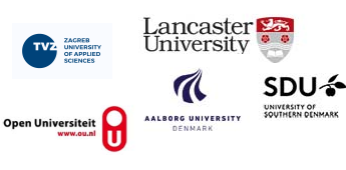

Networked mentoring: a natural extension of self-directed learning
Wendy Holley-Boen, Mandia Mentis, Alison Kearney
Massey University, Auckland, New Zealand.
Keywords
supervision, mentoring, networked learning
Abstract
The primary responsibility of tertiary institutions is to prepare students in such a way that they enact authentic, effective and evolving practices throughout their careers. To achieve this, teaching and learning, including teacher education, have changed in recent years. 21st Century pedagogies are increasingly premised on principles of personalised learning that occur with others and in context; evolving understandings of inclusion and diversity; and a culture of self-directed, inquiry-based and lifelong learning (Bolstad et al., 2012). What counts as knowledge has shifted to encompass the collective views, intuitions and beliefs of participants (Dede, 2008, in Li, 2012). In keeping with these changes, there is never ‘one right answer’, and an increased need to co-author understandings with others.
Models of supervision have not kept pace with networked approaches to learning, and traditional models persist. Professional supervision continues to be framed as a dyadic interaction, usually conducted face-to-face by one expert and one novice. The present study acknowledges the place of traditional supervision, but argues that networked learning begets a framework for networked mentoring. Networked mentoring supports professionals in considering the learning and support they both give and receive at each layer of their ecology. Learning is thus seen as “the product of educational self-organisation. If you allow the educational process to self-organise, then learning emerges. It's not about making learning happen; it's about letting it happen." (Mitra, 2013, 16:32).
In contrast with traditional approaches to mentoring, networked mentoring positions each teacher at the center of their ecology, intentionally and spontaneously recognising opportunities for learning with, from and about others. Teachers are empowered as the people best placed to solve their own problems and identify their own solutions in bespoke and networked ways. The role of the mentor shifts to supporting others to identify, cultivate and sustain their existing and potential networks: their sources of learning on- and off- line, in and out of their formal learning environments.
The focus of this paper is research conducted on networked mentoring within one postgraduate programme in which teachers are encouraged and supported to take charge of their learning and then their networks of support. Key principles and pedagogies within the programme are outlined, to set the stage for the study of networked mentoring.
Joint Organising Institutions
Open University of The Netherlands
| Past Conference Proceedings | Contact |